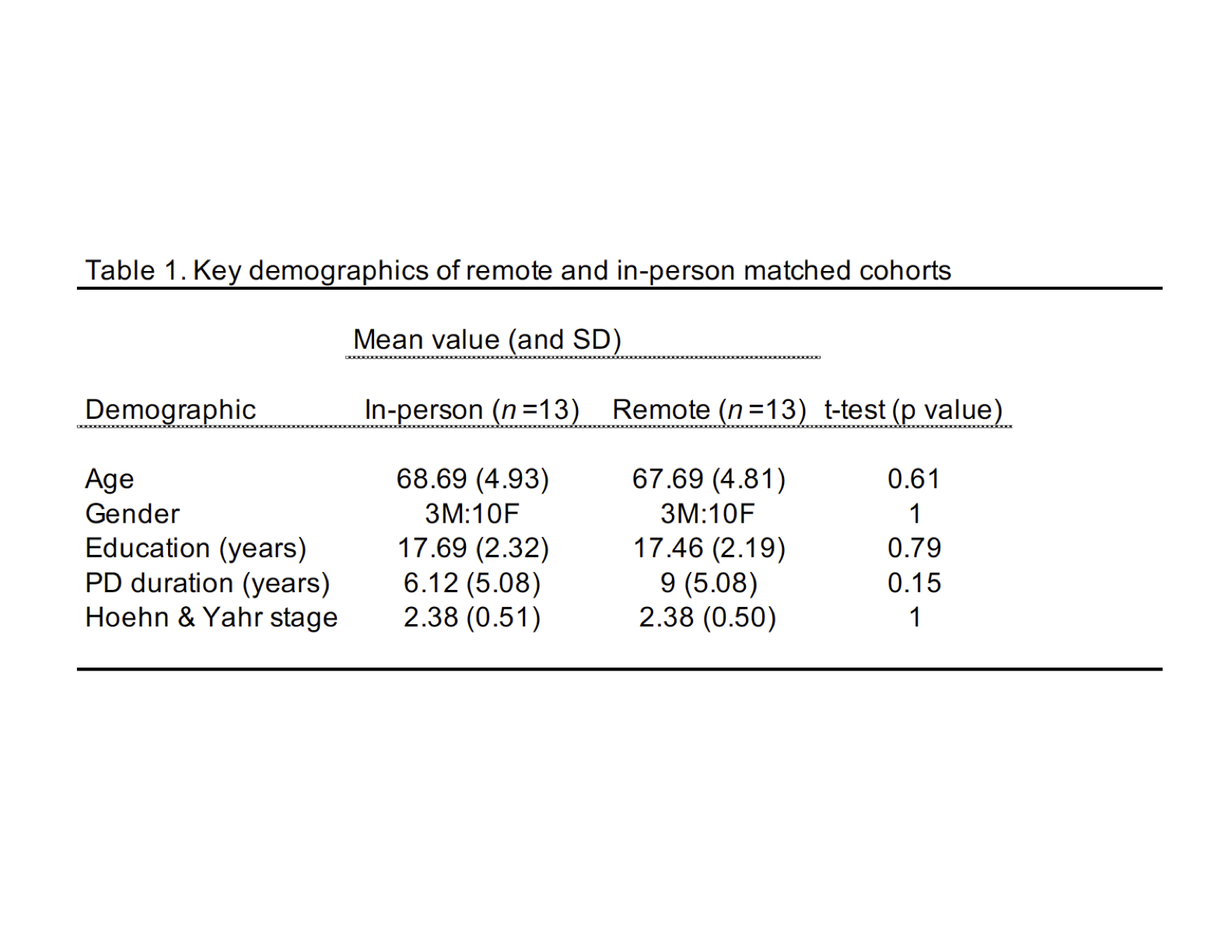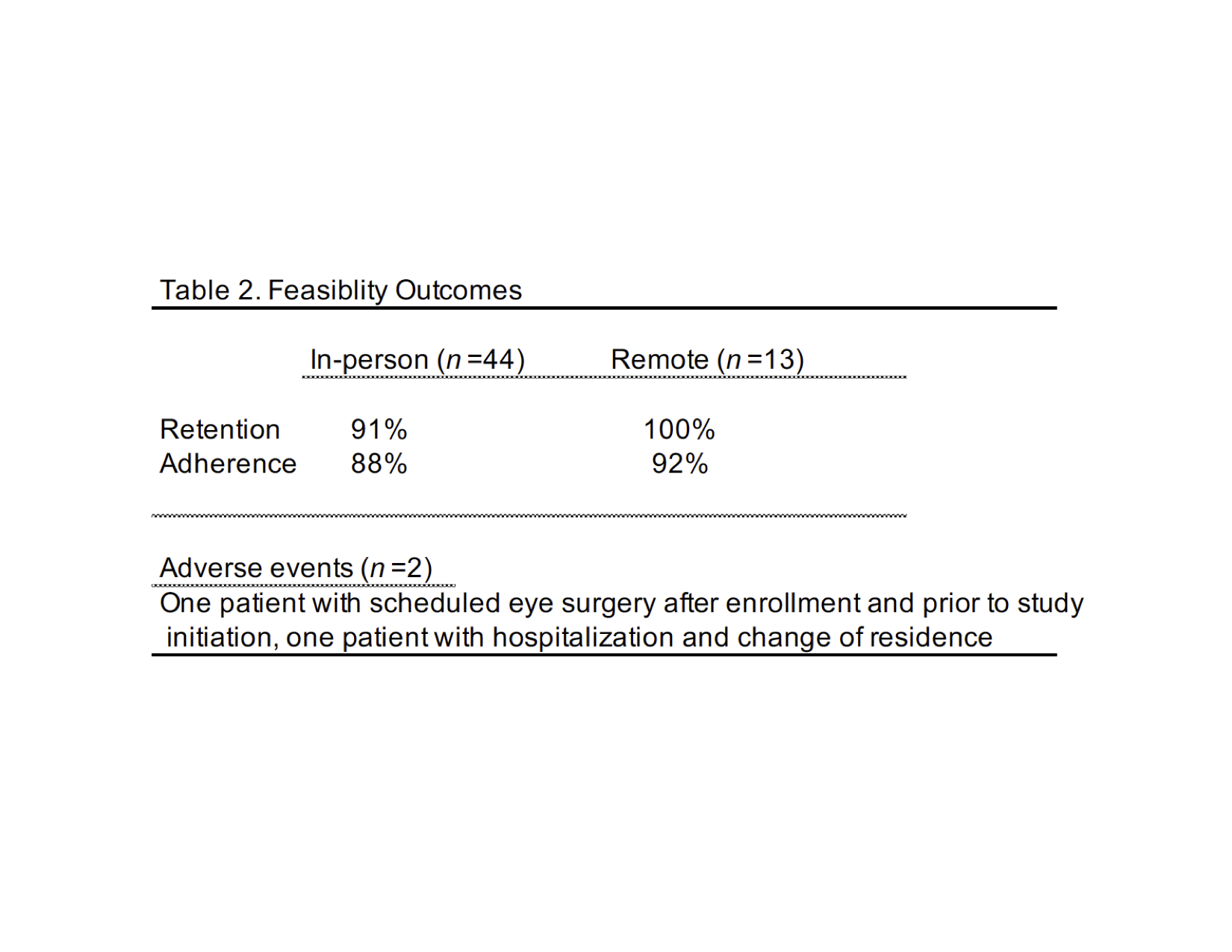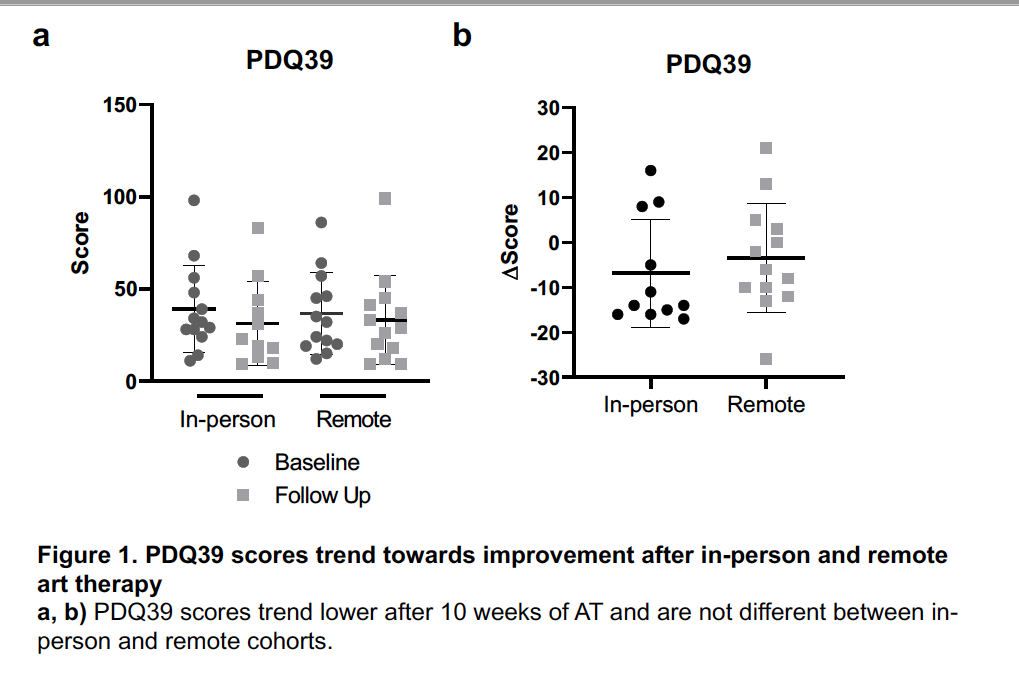Category: Parkinson’s Disease: Clinical Trials
Objective: To evaluate the feasibility of remote art therapy (rAT) for patients with Parkinson’s disease (PD), and compare psychosocial outcomes to in-person AT (ipAT).
Background: Our prior studies1 suggest that AT in patients with PD improves perceptual skills, motor behavior and neurologic function. In PD, progressive motor disability compounded with psychosocial factors may affect accessibility and adherence to care. The COVID19 pandemic likely further limited mobility while exacerbating social withdrawal. Incorporating AT into telehealth may ensure continuity of care while ameliorating social isolation and promoting quality of life. However, accessing telehealth may be technologically challenging. Disease-specific limiting factors may include fluctuations, dyskinesias, and comorbidities, such as fatigue, depression, and anxiety. These considerations raise questions about feasibility and tolerability of rAT in this particular clinical population. In March 2020 a remote extension of the ExplorARTPD study (ClinicalTrials.gov NCT03178786) was developed for a subset of patients who previously completed the ipAT protocol. Though not formally part of the clinical trial, this extension allows for preliminary study of the feasibility of rAT.
Method: Thirteen participants received 10 weekly rAT sessions [table 1] led by art therapists. Baseline and follow-up psychosocial assessments, including PDQ39, were administered. To assess adherence, retention and safety we documented study attendance, completion and potential adverse events. Post-AT changes in PDQ39 scores were analyzed and compared to a matched ipAT cohort.
Results: All participants completed the study with 92% adherence, equal to the 92% ip adherence for these same individuals. This is comparable to the 91% retention and 88% adherence of the entire ExplorARTPD cohort. Two adverse events were reported that were deemed unrelated to the study [table 2]. No significant changes in PDQ39 scores emerged from baseline. Notably, both rAT and ipAT matched cohorts trended towards improved PDQ39 scores [figure 1] despite ongoing COVID19 restrictions.
Conclusion: Our findings indicate that rAT for individuals with PD is feasible, well-tolerated and may enhance quality of life, even in the setting of the COVID19 pandemic. Further studies should be performed to optimize delivery of rAT and assess the clinical benefit for patients with PD.
References: 1. Cucca A, Di Rocco A, Acosta I, et al. Art therapy for Parkinson’s disease. Parkinsonism Relat Disord. 2021;84:148-154. doi:10.1016/j.parkreldis.2021.01.013
To cite this abstract in AMA style:
J. Rieders, K. Astudillo, D. Mania, R. Kilachand, M. Berberian, I. Acosta, A. Cucca, A. Feigin. Remote Art Therapy is feasible and may benefit individuals with Parkinson’s disease [abstract]. Mov Disord. 2021; 36 (suppl 1). https://www.mdsabstracts.org/abstract/remote-art-therapy-is-feasible-and-may-benefit-individuals-with-parkinsons-disease/. Accessed December 25, 2025.« Back to MDS Virtual Congress 2021
MDS Abstracts - https://www.mdsabstracts.org/abstract/remote-art-therapy-is-feasible-and-may-benefit-individuals-with-parkinsons-disease/



